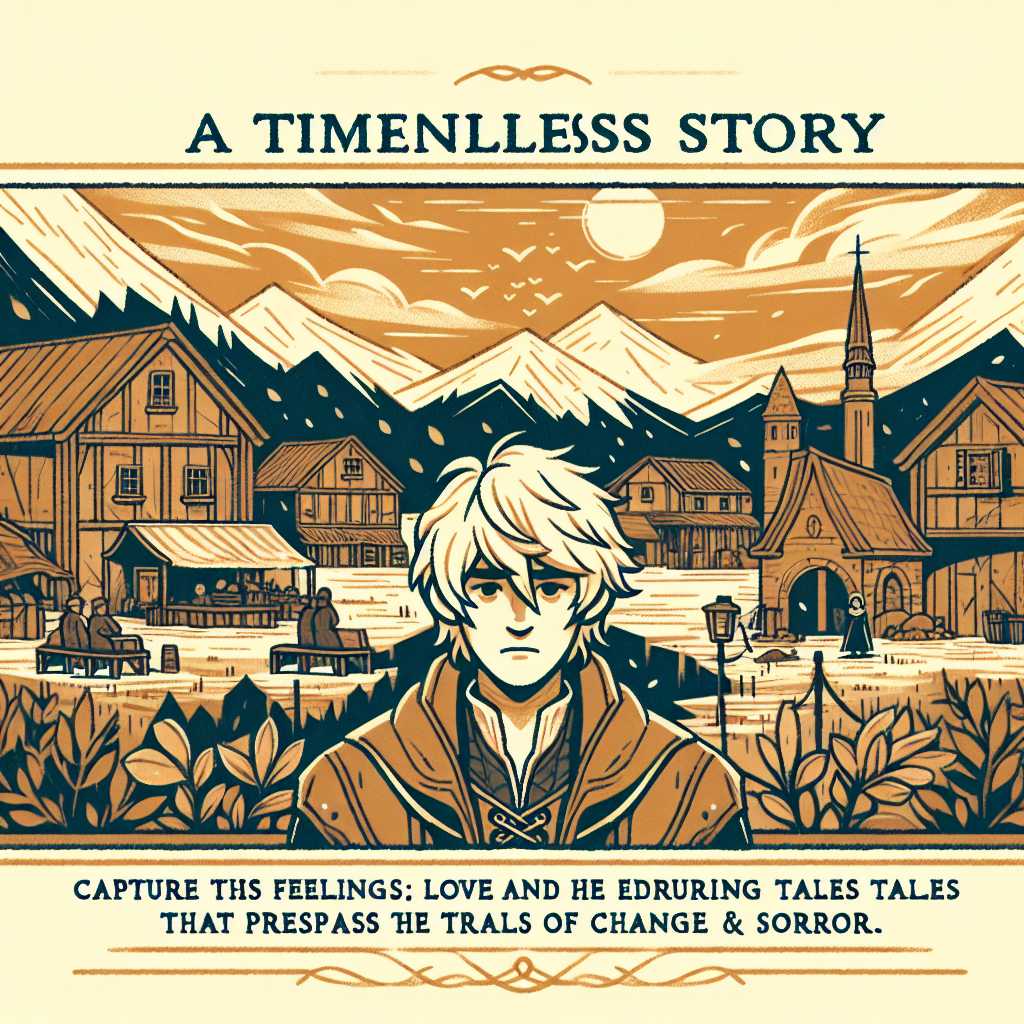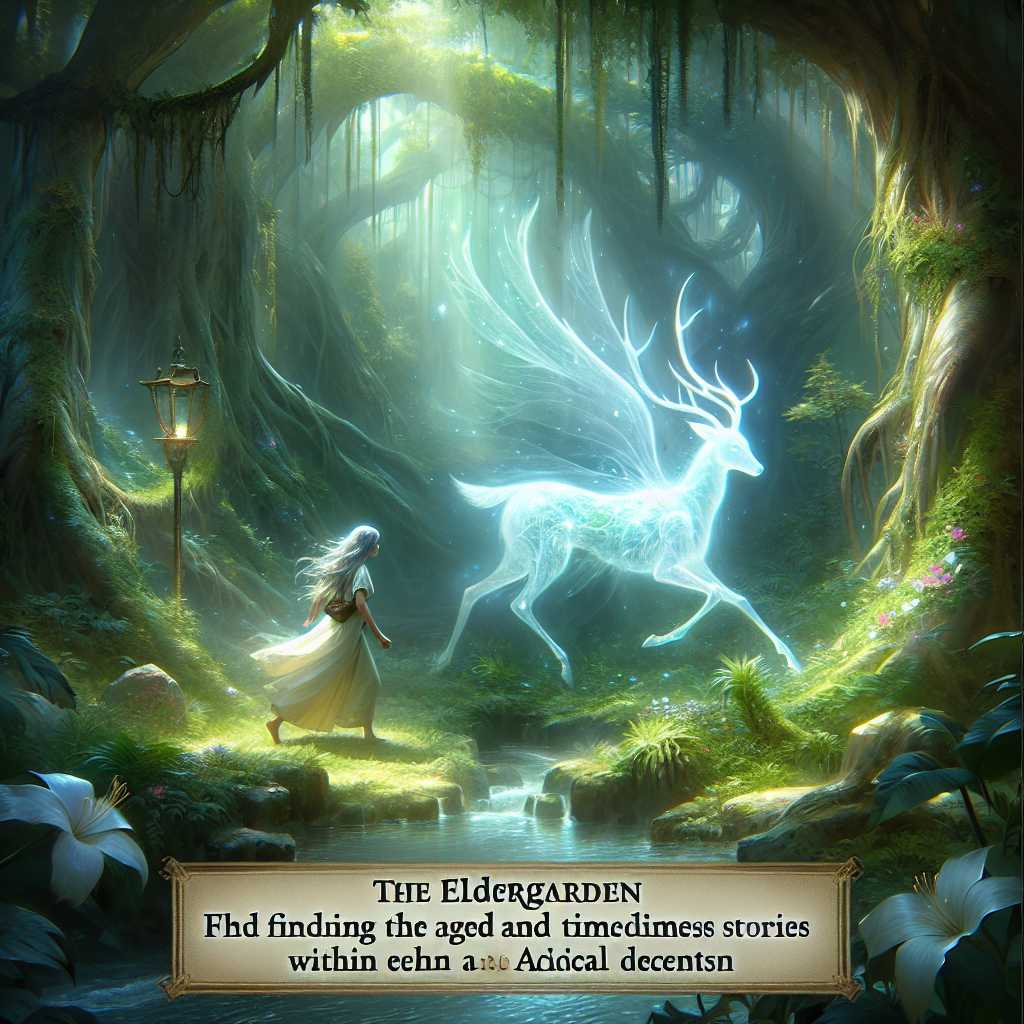
Once upon a time, in a small, quaint village nestled between rolling hills and quiet streams, there lived a gentle old man named Elias. The villagers knew Elias for his unwavering kindness and the stories he shared, stories that made the children’s eyes widen with wonder and the elders’ hearts reminisce about younger days. Yet, few knew the depths of sadness that lingered in Elias's heart.
Elias had not always lived alone. Once, his home was filled with laughter and love. His beloved wife, Anya, with her sparkling eyes and melodic voice, filled their days with joy. Together, they raised a daughter, Lila, whose sprightly nature and infectious laughter were the light of their lives. For years, their days were painted with happiness; a perfect picture framed by the serenity of the village.
Time, however, has its own cruel fancies. When Lila turned 16, a mysterious illness swept through the village, claiming young and old alike. Anya, driven by her caring nature, tirelessly tended to the sick, her own health gradually withering under the strain. It was a chilly autumn evening when the village bells tolled mournfully, announcing the passing of sweet Anya.
"To lose a love so deep, is to walk in shadows where once there was light," friends would console Elias, but nothing could mend the void left in his heart.
After Anya's passing, Elias clung to Lila. Her laughter, although tinged with a newly found sadness, reminded him of Anya, and together they navigated through the fog of grief. However, as seasons passed, Lila's desire to explore the world grew stronger. Like a butterfly trapped inside a bell jar, she longed to spread her wings beyond the painted confines of the village. Each request to leave was met with Elias's silent fear—a fear of solitude and the unknown.
In a moment of understanding, Elias finally relented. He held Lila close, his heart pounding with trepidation, whispering:
"My dearest Lila, no matter where you go, know that my heart travels with you."
With a tearful goodbye, Lila ventured forth, promising to write and visit as often as she could. For a time, her letters came like a fresh breeze, filled with tales of distant lands and new friends. Elias cherished each word, reading them repeatedly until the ink began to fade, and he could recite every line by heart.
Yet, as the years passed, the letters became sporadic, like rain in a drought. Eventually, they stopped altogether. Elias's frail heart fought against the silence, convincing himself daily that Lila was just too busy with her adventures to write. He never stopped expecting her return, and each sunrise brought new hope.
Years stretched into decades, and Elias became a figure of solitude, a relic of the past. His stories, once vibrant, reflected the heartache he tried to hide. The village, over time, changed. Faces he knew became rare, and the younger generation spoke his name as a legend, a whisper among the rustling leaves of the old oak trees surrounding the village square.
One winter swept more coldly than others, a testament to the cruel passage of time. On a particularly frostbitten night, as snowflakes swirled like ghosts in the wind, Elias sat by the hearth, an ancient letter from Lila clutched to his chest. His eyes drooped with the weight of years, and he whispered to the shadows:
"I miss you, Anya. I hope my Lila is safe."
The firelight flickered and dimmed, casting his small, frail figure into a lonesome shadow. It was on this night, as the village lay hushed under a blanket of snow, that Elias quietly joined Anya, leaving the world behind.
Come morning, when the village awoke to find the old man gone, a mournful veil enveloped them. Elias had been their storyteller, a keeper of memories that transcended time. They gathered to bid him farewell, each sharing the stories they’d heard from him countless times, their words wrapping around them like a comforting shroud.
In Elias’s small, humble abode, the villagers found a collection of letters from Lila, worn with love and longing. Beside them lay an envelope, sealed but never opened, the last letter from Lila, returned some years ago, its contents forever unread by Elias.
As a gentle snow began to fall, the villagers erected a small monument beneath the old oak tree, inscribing it with words Elias had once expressed:
"To remember a story is to remember love, for stories are like embraces, warming us in times of cold."
And so, the memory of Elias lived on in the tales told to children gathered beneath that old tree, where each whispered narrative was a nod to the gentle old man who held a village together with his stories and his sadness, even after he was gone.










